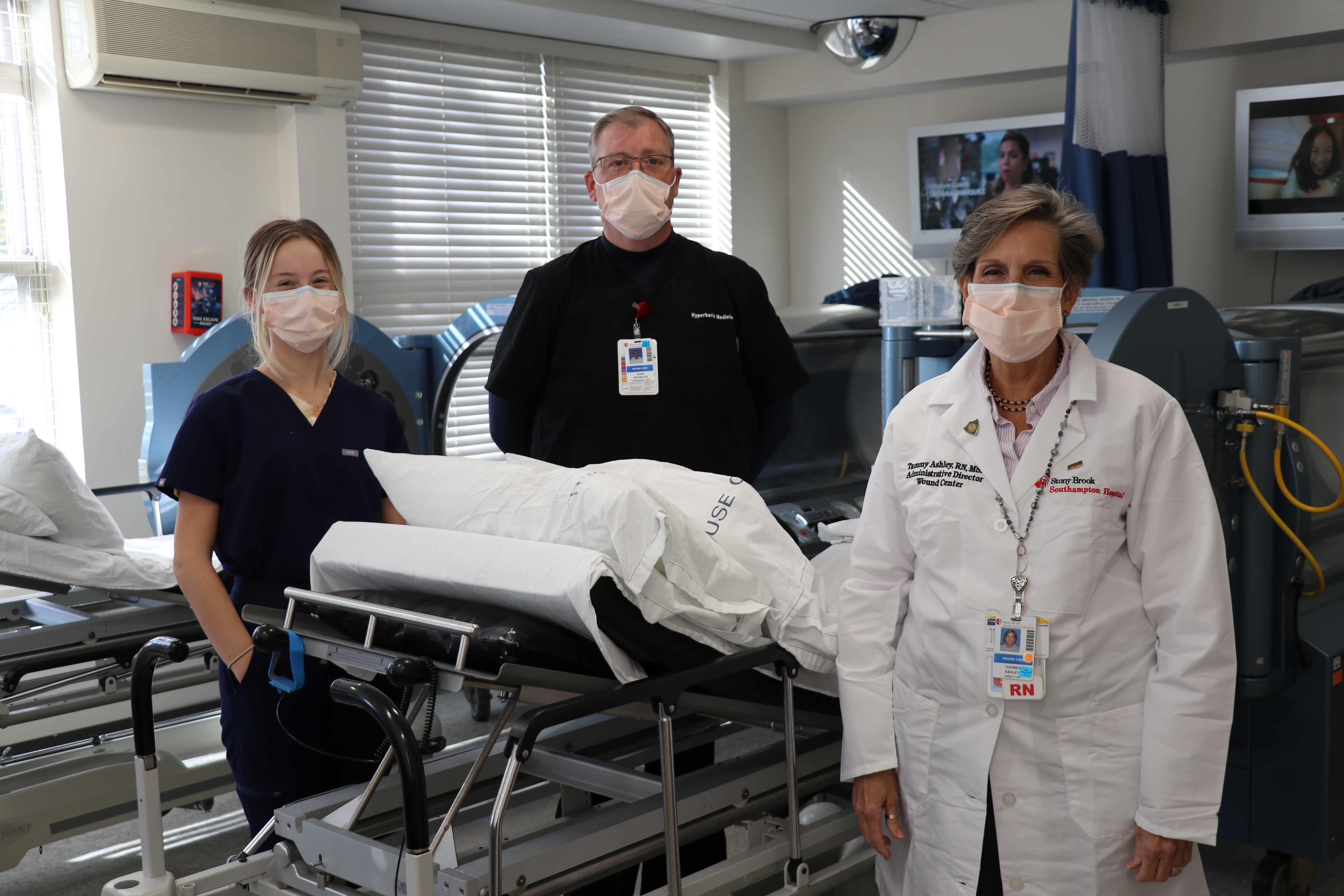(631) 726-8444
By Appointment
| Wound Care | Monday - Friday, 8:00 a.m. to 4:00 p.m. | |
| Hyperbaric Oxygen Therapy | Monday - Friday, 8:00 a.m. to 4:00 p.m. |
Advanced Wound Healing
At Stony Brook Southampton Hospital, Advanced Wound Healing is under the direction of the Respiratory Care Department and staffed by Registered Respiratory Therapists who are also Certified Hyperbaric Technicians (CHT). The team uses the most sophisticated wound care practices and advanced clinical approaches, including hyperbaric oxygen treatment. Each treatment plan is tailored to the individual patient to help advance the healing process. Most treatments are covered by Medicare/Medicaid, HMOs, and other private insurance plans.
The course of treatment depends on what type of wound you have. During your first visit, our staff of physicians and nurses will evaluate your wound and review your medical history. You may also need special tests that give us information about circulation to the wound.
Hyperbaric Oxygen Therapy
Hyperbaric Oxygen Therapy (HBOT) may be added to heal patients with wounds that have not responded to other treatment. In a comfortable treatment chamber, patients breathe in pure pressurized oxygen that encourages healing and the body’s ability to repair itself.
Benefits of Hyperbaric Oxygen Therapy:
- Stimulates blood vessels growth, which promotes healing
- Enhances white blood cell presence at the wound site
- Reduces inflammation that slows blood flow
- Strengthens the body’s immune system & helps fight infections
What is Treated with HBOT:
- Diabetic foot wounds and selected problem wounds;
- Delayed radiation injury: Soft tissue radionecrosis (radiation proctitis, cystitis and enteritis)
- Osteoradionecrosis
- Osteomyelitis (refractory)
- Compromised grafts and flaps
- Necrotizing soft tissue infections
- Clostridial myositis and myonecrosis (gas gangrene)
- Crush injury, compartment syndrome and acute traumatic ischemia
- Air or gas embolism
- Carbon monoxide poisoning
- Decompression sickness
- Severe anemia
- Intracranial abscess

